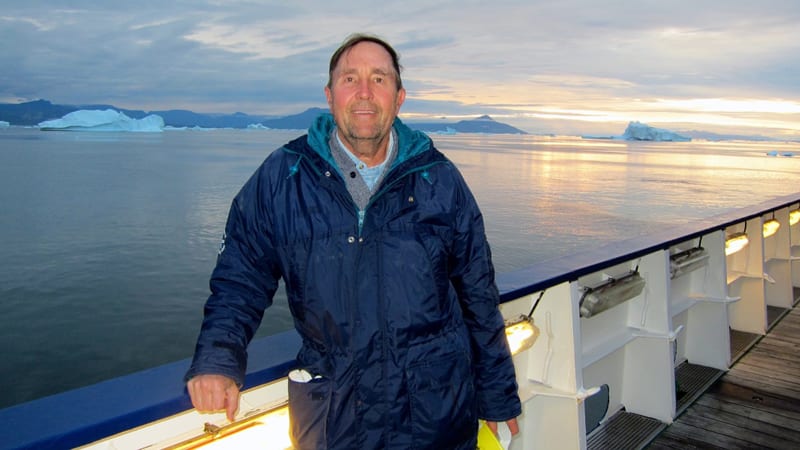Dr. Don Anderson
The Woods Hole Oceanographic Institution (WHOI) has selected Dr. Don Anderson, a senior scientist in the Biology Department at WHOI to receive the prestigious 2017 Bostwick H. Ketchum Award.
The award honors an internationally recognized scientist who demonstrates an innovative approach to coastal research, leadership in the scientific community, and who forges a link between coastal research and societal issues. Anderson will receive a bronze medallion and an honorarium at an award reception in Woods Hole on May 10, 2017.
"The Ketchum award is among the highest honors bestowed by WHOI, and it recognizes Anderson as a national and international leader in the significant and growing area of HAB research," said WHOI President and Director Mark Abbott . "The implications of his work are far reaching for not only the study of the coastal ocean, but also its impact on local, regional, and international public health. WHOI is proud to have Don Anderson among its ranks."
The 17th winner of the award, Anderson has been a leader in the field of harmful algal blooms (HABs, commonly known as "red tides") for over 35 years. HABs are outbreaks of microscopic algae that can cause a host of problems—they make fish and shellfish poisonous to humans, cause mass mortalities of fish, seabirds, whales, and other marine animals, drive tourists from beaches due to toxic sea spray or huge quantities of rotting and noxious biomass, disrupt food chains, and make drinking water poisonous. With a focus on the species of dinoflagellate known as Alexandrium fundyenese, which causes paralytic shellfish poisoning (PSP), Anderson has been a leader in research on this and other related organisms and their toxins, and in communicating and disseminating research results and observations to resource managers to avert potential disasters.
His research and activities in support of New England and U.S. fisheries impacted by HABs are Anderson’s main focus, but he also spends considerable time working with international colleagues and their governments as they struggle with many of the same HAB problems. He was recently invited to Chile where one major HAB killed 40 million farmed salmon worth $800 million and then another bloom followed that shut down the shellfish industry, causing major social upheaval and protests against the government’s handling of the crisis. In the U.S., he helped create a national program on marine and freshwater HABs, testifying eight times before House and Senate Committees and championing legislation that authorizes the program and provides funding for the field.
Anderson is the director of the Cooperative Institute for the North Atlantic Region as well as the U.S. National Office for Harmful Algal Blooms. Together with colleagues, Anderson pioneered the use of new remote sensing technologies from both space and in-water sensors to detect and define HAB populations in a more automated and real-time manner. "Don Anderson is the one person who is called first for advice and assistance on HABs in all parts of the world," said Anderson’s colleagues in a nomination letter.
Anderson earned his PhD from MIT in 1977, and came to WHOI as a postdoctoral investigator in 1978, moving through the ranks to his present position as senior scientist. He has authored or co-authored more than 300 scientific papers on HABs and more than a dozen books. He is the recipient of numerous awards and distinctions, including the Yasumoto Lifetime Achievement Award given by the International Society for the Study of Harmful Algae, the Anton Bruun Memorial Medal from the Intergovernmental Oceanographic Commission, the David L. Belding Award from the Massachusetts Marine Fisheries Advisory Commission, as well as the NOAA Environmental Hero award. He recently received the President’s International Fellowship for Distinguished Scientists from the Chinese Academy of Sciences.
He has trained and inspired countless next generation HAB researchers as an advisor and mentor to MIT/WHOI Joint Program students, post-doctoral investigators, guest students, and summer student fellows from around the world.
The Ketchum Award was established by WHOI in 1983 in tribute to the late Bostwick H. "Buck" Ketchum, an internationally respected oceanographer. Ketchum was associated with WHOI for 40 years and was a leader in the development of biological oceanography. Buck Ketchum's pioneering research provided the basis of understanding the productivity of the oceans, and his early work is still cited by scientists in the field.
At the WHOI award ceremony, Anderson will present a talk titled "The New England Red Tide: a retrospective and synthesis of Alexandrium bloom dynamics and ecology," which will be followed by a reception.


